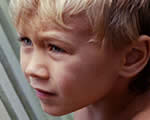 Go to main content
Go to main content
Archive Website of the UK government
Please note that this website has a UK government accesskeys system.
Main menu
Page menu
Parents

Keeping your child safe from abuse

Simply talking to your child may be your first step in keeping them safe from child abuse. You are more likely to discover any threat to your child's safety if you have an open and trusting relationship with them. If you suspect a child is being abused, find out who to contact.
Report suspected child abuse
If you suspect that a child is being abused, report it to the police or local social services.
If you think a child is in immediate danger, call 999 straight away. Otherwise, contact your local council’s social services department. To find your local council, follow the link below.
Support from the NSPCC
The NSPCC is the national charity specialising in child protection and the prevention of cruelty to children.
For contact details of the NSPCC Helpline, follow the link below.
Things you can say to help keep your child safe
Here are a few things you could talk about with your child:
- your child has the right to be safe - reassure your child that they will not be punished if they say they feel unsafe or threatened in any way by any person (including family members)
- the truth will always be believed - encourage your child to tell you if anything is making them feel uncomfortable, confused or scared (children rarely lie about abuse)
- their body is their own - talk to your child about the areas that should be covered (swimsuit areas) and encourage them to tell you if anyone tries to go beyond these boundaries
- say 'no' - children often think they have to do whatever an adult tells them to, particularly if they have been made to hug or kiss adults when they don't want to
- some secrets should never be kept - since abusers and bullies often say 'it's our secret' or even threaten the safety of other family members, tell your child that secrets like that should never be kept
- reassure your child that no harm will come to them or their loved ones if they tell the truth about abuse
- if a stranger tries to talk to your child, tell your child to pretend not to hear them and go to you immediately
These two last tips cover all sorts of situations:
- tell your child it is okay to break the rules if they are in danger - encourage your child to yell, kick, scream, lie or run away if they feel they are in danger
- have a code word or sign that only your child and you (and another parent/carer) know - if your child needs to be collected, they can give that person the code
Further information and advice on all the points above can be found at the Kidscape website.
Useful contacts
In this section...
- Dealing with bullying
- Bullying: getting support
- Keeping your children safe from crime
- Protecting older children who are leaving home
- Helping your child avoid the dangers of drugs
- Alcohol, young people and the law
- Talking to your child about sex and teenage pregnancy
- Keeping children safe: your right to ask for a police check
 Facebook
Facebook Twitter
Twitter StumbleUpon
StumbleUpon Delicious
Delicious Reddit
Reddit
